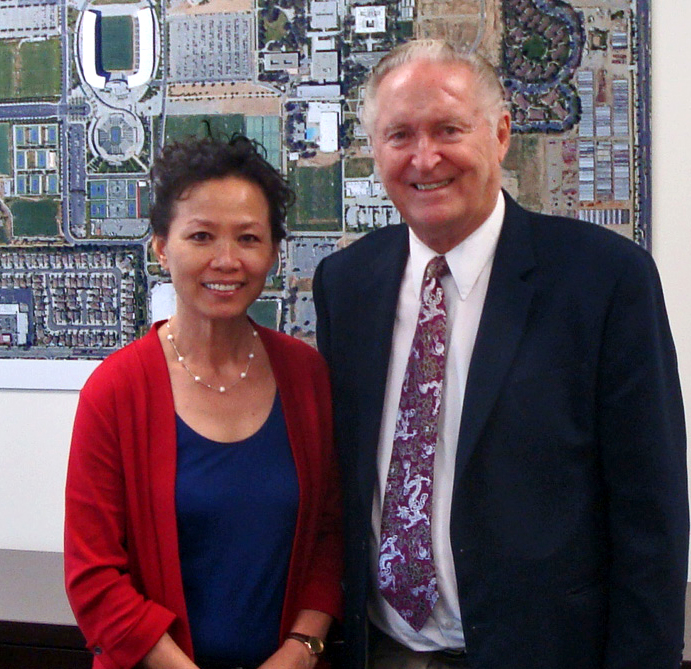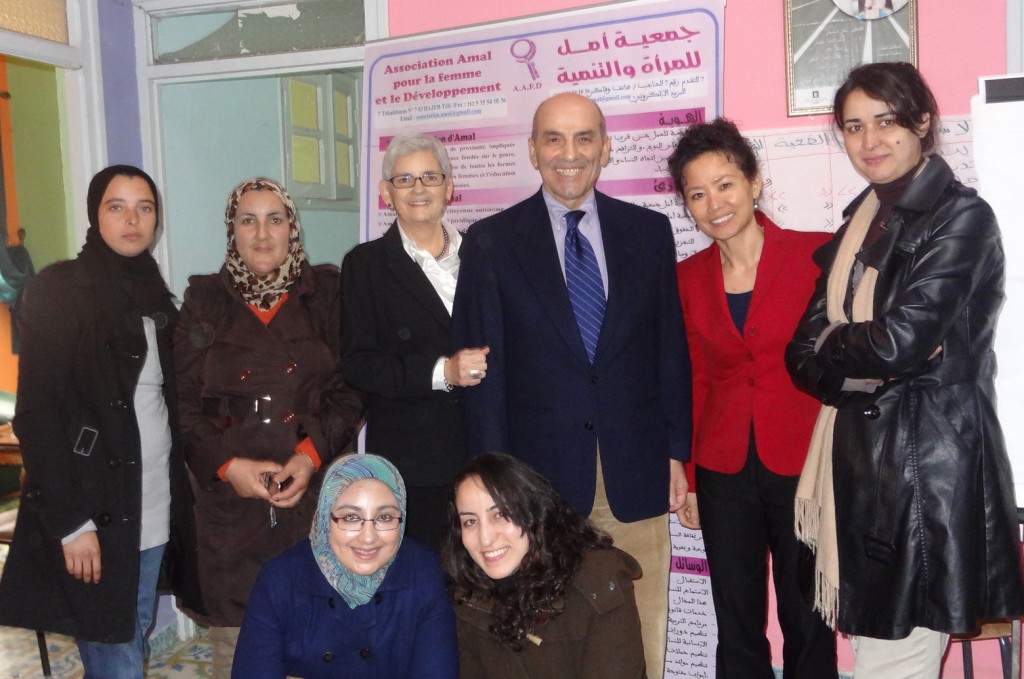Throughout her husband’s nearly 30-year career as a United States diplomat in the State Department’s Foreign Service, Janice Schill gladly lived for years at a time in places where he was assigned, such as South Africa, China, Jordan, and Fiji.
“I’ve traveled the world [with my husband Jim]… I’ve learned a lot, accumulated a lot of information, knowledge, experience,” Schill remarked.
To immerse herself in the rich cultures into which she was embedded and to contribute to their communities, she volunteered at local hospitals and schools.
Unknowingly, she was laying a strong foundation for her own entry into the Foreign Service. Once her husband retired from the foreign service, the couple eventually settled in Palos Verdes. While her husband continued as a foreign service contractor, Schill, a native of Malaysia, realized she missed the foreign service environment and took steps to activate her dream of serving the U.S.–her adopted country–in the diplomatic corp.

Although she held a vocational degree from Malaysia, she wanted to be as qualified as possible–she wanted a university degree that would help prepare her for her intended occupation. So, in her mid-forties, with her husband on assignment in Afghanistan and while doing the lion’s share of raising the couple’s young son, she returned to school and earned an associate degree from El Camino College and in 2007 a bachelor’s in public administration from California State University, Dominguez Hills.
Emeritus faculty member David Karber, who was a mentor to Schill throughout her time at CSU Dominguez Hills and still keeps in touch to this day, recalled how she was introduced to the university.
“I was head of the public administration department … and I got this call from admissions saying, ‘There’s a student at El Camino that’s considering coming to Dominguez Hills. She’s very bright. Would you be willing to come and talk to her and tell about the opportunities at Dominguez Hills?’ … She was considering her options and I twisted her arm,” Karber said, with a playful chuckle.
Within months of graduating from the university, Schill was selected to join the U.S. Foreign Service after passing a series of tests. She was ready to help promote American values abroad.
“It’s a high-octane lifestyle,” Schill remarked. “Especially today, when the U.S. government resources have diminished… Also remember, we are working in an Internet age where information and demand are coming at you at super-warp speed.”
But with courses such as public administration and communications under her belt, the Summa Cum Laude graduate felt confident she could handle whatever challenges arose.
“All of the classes [I took at CSU Dominguez Hills] were useful. … There was always something to be learned. I had great professors and I learned a lot,” she recalled. “It used to be that they would say that the State Department Foreign Service is usually for those with an Ivy League master’s degree, but I was the perfect example of: It’s what you make out of your degree; out of yourself.”
A self-described life-long learner, the former Toro relished in the additional training the State Department provided.

Following a previous assignment to the Philippines, she is now serving at the U.S. Consulate in Casablanca, the economic capital city of Morocco. As part of her preparation, Schill completed 10 months of training at the Foreign Service Institute in Arlington, Virginia. Seven of those months were concentrated on learning and becoming fluent in French, which along with standard Arabic is one of the spoken languages in Morocco.
“It’s been a wonderful opportunity to pick up a language,” commented Schill, who is also fluent in Malaysian, Hokkien, a Chinese dialect, and English. “Once I got out and used my newfound language, … I found freedom. I was able to communicate with people from a different culture who don’t speak my language. It is so enriching. It allows me to communicate with people, share my thoughts, express my desire and hear their thoughts as well.”
In addition to having an inclination for language acquisition, Foreign Service officers need to have exemplary skills in a broad range of areas including interpersonal communication, writing, math, culture, and world history to name a few. Moreover, they must be amenable to working and living in, often, far reaches of the globe and in third-world conditions.
Although Schill and her husband visit their home base in Palos Verdes every chance they get, she recognizes that serving abroad has been more a labor of love than a hardship.
“Some people will tell you, the best assignments are often the ones they least expected. It doesn’t matter where you go, whether you go to a first-world or a developing country, there are always trade-offs,” Schill said. “I like to move. That’s why I entered the Foreign Service. I want to serve and also explore as many different regions and countries as possible.”
While there is some risk, Schill takes that part of the job in stride.
“It has its challenges, especially in today’s world when there’s a lot of turmoil going on,” she said. “It’s always in the back of our mind. The U.S. government can only protect us so much and give us so much training on safety. We have to do our share to be situationally aware at all times.”
Although Schill has seen much of the world, she never forgets her jumping off point.
“How does an immigrant get to be part of the diplomatic core? It sounds so far fetched. It’s like trying to go from here to the moon, to some people. … Nothing is impossible in this country I found out. There are so many resources available,” she said. “Dominguez Hills … was efficient. Everything worked and it really facilitated my life. I had an objective and it helped me get there. That’s the important part.”